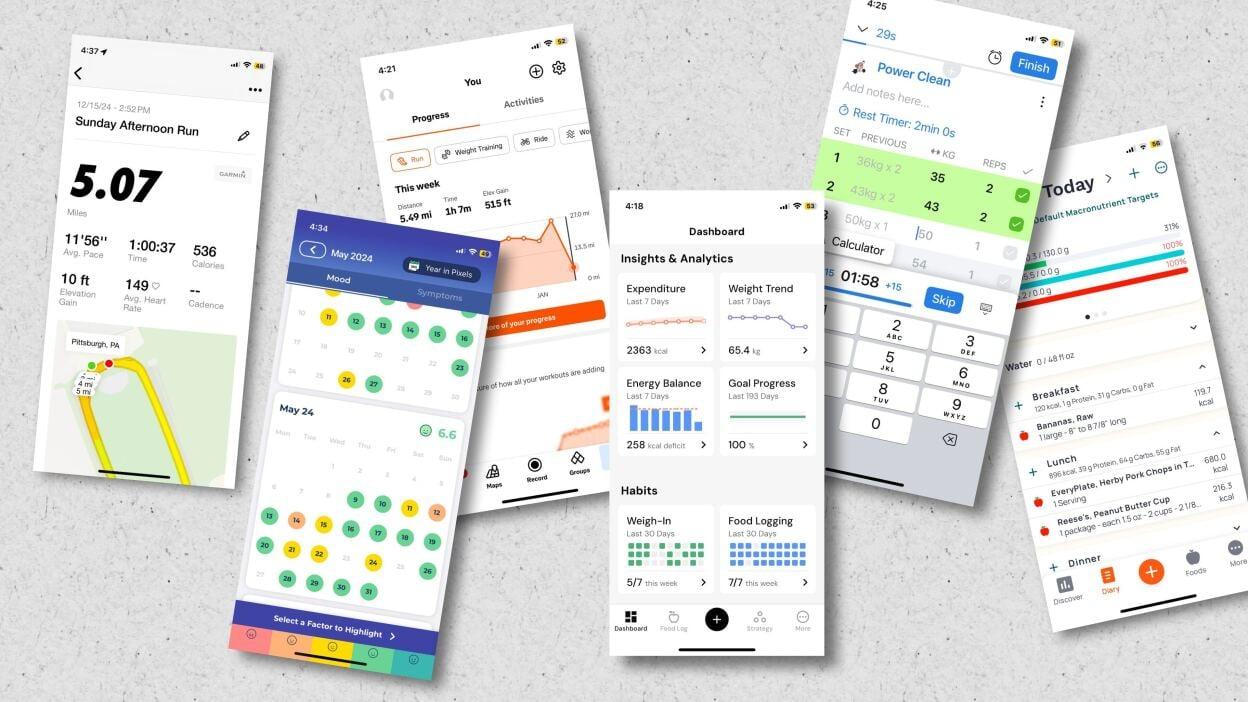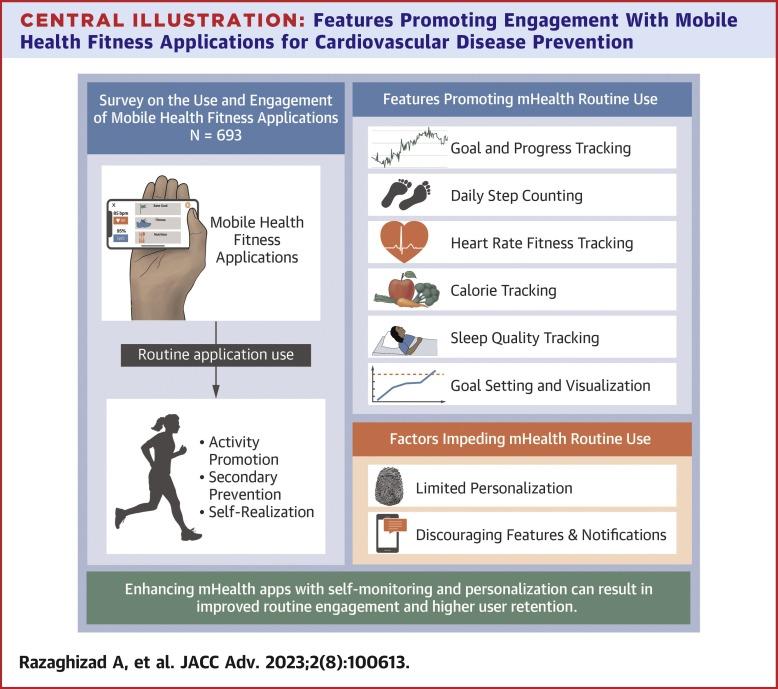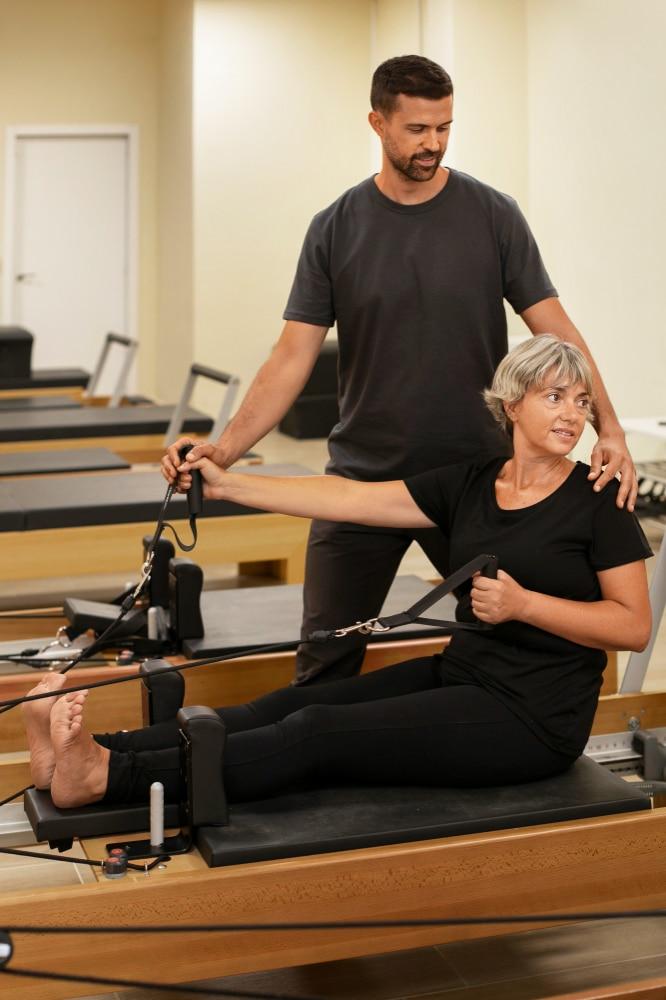In a world where time is a precious commodity and well-being often takes a backseat, mobile fitness apps are steadily transforming how we approach health. These digital companions bring workouts,nutrition guidance,and mindfulness practices right to our fingertips,breaking down conventional barriers to fitness. As technology and wellness intertwine, a new era emerges—one where personalized coaching travels with us, and achieving balance fits seamlessly into the rhythm of everyday life. This article explores the rise of mobile fitness apps and their revolutionary impact on the way we pursue wellness in the modern age.
Table of Contents
- The Transformative Impact of Mobile Fitness Apps on Personal Health
- Exploring Key Features Driving User Engagement and Motivation
- Integrating Technology and Wellness for Customized Fitness Journeys
- Best Practices for Choosing and Maximizing Mobile Fitness App Benefits
- Key Takeaways

The Transformative Impact of Mobile fitness apps on Personal Health
The integration of mobile fitness apps into daily routines has catalyzed a profound shift in how individuals approach their health and wellness.These apps tailor workout plans and nutritional guidance to fit personal goals and lifestyles, creating a customized fitness experience that was once only available thru professional trainers. By employing real-time data tracking and AI-driven insights, users can monitor progress with precision, stay motivated through gamified challenges, and even access virtual coaching, all from the convenience of their smartphones.This democratization of health details empowers individuals to take control of their well-being without the constraints of time, geography, or expense.
Beyond personalized training, mobile fitness apps foster community and accountability by connecting users to a network of like-minded individuals. Features such as group challenges, leaderboard rankings, and social sharing ignite collective motivation, transforming solitary workouts into shared experiences. The impact extends to mental health as well, with mindfulness and recovery modules promoting a holistic approach.Here are some key benefits these apps bring to the table:
- Accessibility: Workouts and health data accessible anytime,anywhere.
- Data-driven insights: Tracking biometrics improves personalized results.
- Community support: Social engagement enhances motivation and consistency.
- Integration: Syncs with wearables and health ecosystems like Apple Health and Google Fit.
- Holistic wellness: Combines physical exercise with mental health tools.

Exploring Key Features Driving User Engagement and Motivation
Mobile fitness apps have ingeniously incorporated features that captivate users and sustain their motivation over time. Gamification elements like progress badges, leaderboards, and daily challenges tap into the innate human desire for achievement and competition. These dynamic tools not only mark milestones but also transform fitness routines into engaging journeys.Moreover, personalized feedback driven by AI algorithms offers real-time insights and adaptive workout plans, ensuring that users receive tailored encouragement that aligns with their individual progress and goals. According to a study published by NIH,personalized interventions markedly increase adherence to exercise programs.
Social connectivity stands out as another cornerstone in fostering commitment. Users can share achievements, participate in community challenges, or find workout buddies, enriching their experience through a sense of belonging and accountability. Features such as integrated messaging, group events, and virtual fitness classes propel motivation by blending social support with healthy competition. The following table summarizes the quintessential features and their psychological impact on users:
| Feature | User Benefit | Motivational Effect |
|---|---|---|
| gamification & Badges | Visual milestones and rewards | Boosts achievement drive |
| AI-Personalized Feedback | adaptive workout plans | Enhances commitment through relevance |
| Social Sharing & Groups | Community support & accountability | Fosters sustained engagement |
| Real-Time Progress Tracking | Instant feedback on performance | Maintains motivation with visible progress |
The balance of technology and psychology embodied by mobile fitness apps underscores their transformative impact.For more insights on behavioral science and motivation, resources like the American Psychological Association provide in-depth perspectives on how these digital tools harness motivation theories effectively.

Integrating Technology and Wellness for Customized Fitness Journeys
The marriage of advanced technology and personalized wellness is transforming how individuals achieve their fitness goals. Mobile apps are no longer just timers or step counters; they incorporate AI-driven analytics, biometric data, and real-time feedback to create adaptive workout regimes tailored uniquely to each user. by analyzing sleep patterns, nutrition intake, and stress levels, these platforms develop holistic fitness plans that evolve based on progress and lifestyle changes. This dynamic approach ensures that wellness is not a one-size-fits-all concept but a personalized journey powered by continuous innovation.
Among the key features shaping this evolution are:
- Machine learning algorithms that predict and adjust routines for optimal results.
- Integration with wearable devices for precise health monitoring.
- Virtual coaching and community support for motivation and accountability.
To better visualize the potential benefits these integrative apps provide, consider the simplified comparison below between traditional fitness methods and tech-enhanced personalization:
| Aspect | Traditional Fitness | Technology-Integrated Wellness |
|---|---|---|
| Customization | Fixed routines | Dynamic, data-driven plans |
| Feedback | Periodic, manual tracking | Real-time, automated insights |
| Motivation | Self-driven | Community & AI coaching |
| Progress Tracking | Inconsistent | Consistent & integrated |
For users aiming to delve deeper into the science behind these innovations, reputable sources such as the National Centre for biotechnology Information (NCBI) provide comprehensive research articles on AI and fitness. Additionally, the industry insights shared by Consumer Reports help decode which apps truly stand out for effectiveness and user experience.

Best Practices for Choosing and Maximizing Mobile Fitness app Benefits
Choosing the right mobile fitness app involves more than just browsing popular options. Consider your unique goals, lifestyle, and technology preferences to ensure the app you select truly complements your wellness journey. Features such as customizable workout plans,integration with wearable devices,and real-time feedback can substantially enhance motivation and results. Before committing, take advantage of free trials and read expert reviews on platforms like Healthline to identify apps that align with your needs.
Maximizing the benefits from your chosen app requires consistent usage combined with smart strategies:
- Set realistic milestones: Break your fitness objectives into achievable targets to maintain momentum.
- Leverage community features: Engage with app forums or social sharing options to boost accountability.
- Track varied metrics: Monitor progress through detailed data like heart rate, calorie burn, and sleep quality.
| Feature | Benefit | Recommended App |
|---|---|---|
| Personalized Workouts | Tailored exercise routines based on fitness level | MyFitnessPal |
| Wearable Syncing | Seamless tracking across devices for holistic health data | Fitbit |
| Community Challenges | Motivates through social interaction and competition | Strava |
Key Takeaways
As the pace of modern life shows no signs of slowing, mobile fitness apps stand at the forefront of a wellness revolution—transforming pockets into personal gyms and unlocking new paths to health for millions worldwide. Whether it’s guiding a mindful stretch at dawn or tracking that final sprint to a daily goal, these digital companions adapt to our rhythms, making wellness not just an ideal but an accessible part of everyday life. In embracing this tech-fueled shift, we’re not just changing how we move; we’re redefining what it means to be well in the digital age.



